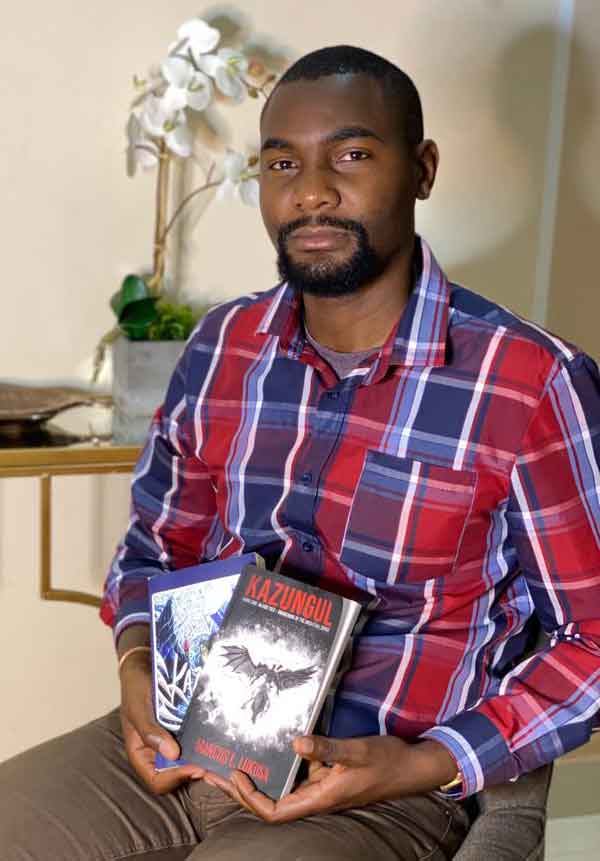“We humans have a challenge that other organisms don’t have. We are confronted with way more reality than any of us can stomach and we are afforded way more ways to escape it.”
~Jeremy E. Sherman Ph.D., MPP, psychologist and author
In the midst of a global pandemic, where days are often emotionally charged and rigged with uncertainty and misfortune, don’t you feel the need to break from reality from time to time? I don’t know about you, but reading about contemporary stories can be a bit too much these days. All grief and strife of the current climate are just too relatable, too achingly familiar that the art of escapism has suddenly become attractive for me – and probably for a lot of people.
If only for this reason, I am advocating fantasy or escapism as vital for the human mind. We know that for children, it is critical in the development and exercising of their imagination, just as it is a key coping mechanism for adults. We humans face way too much of the world’s harsh realities, we need a way to escape it from time to time. We need to elevate escapism to a higher, more respected status.
 Kazungul series author Marcus Lukusa has known from a young age that fantasy offers children a rehearsed exploration of the too big, too treacherous world getting more real each day. Before delving into writing, storytelling was his main game. “It has been my world since I was a child, I used to enjoy recounting stories to friends and family. In the beginning, it was mostly bible stories from bible school, then fiction, then I started making up my own stories and told them verbally, but I knew I wanted to write books and screenplays later in life,” he recalls. He fondly calls to mind the time in his childhood when he was a huge fan of fantasy masterpieces like Star Wars, Lord of the Rings, and Arkadia, always wishing to create something just as big and unique for the world of fiction.
Kazungul series author Marcus Lukusa has known from a young age that fantasy offers children a rehearsed exploration of the too big, too treacherous world getting more real each day. Before delving into writing, storytelling was his main game. “It has been my world since I was a child, I used to enjoy recounting stories to friends and family. In the beginning, it was mostly bible stories from bible school, then fiction, then I started making up my own stories and told them verbally, but I knew I wanted to write books and screenplays later in life,” he recalls. He fondly calls to mind the time in his childhood when he was a huge fan of fantasy masterpieces like Star Wars, Lord of the Rings, and Arkadia, always wishing to create something just as big and unique for the world of fiction.
He also discovered early in his youth how powerful written words are as a tool in preserving traditions and memories, sharing ideas, even saving lives – something that people now generally take for granted. He narrates, “In the world, all we really share are feelings. It is the end result of all that we do, so words are elements that can touch on these feelings, in one of the most ancient and powerful ways. Like music, someone’s imagination can be triggered by what they read. It will ignite certain feelings inside of them. That’s the magic of words, its ability to move feelings. I saw the effect on my siblings back when we were children. The stories I told them created so much impact that they seemed to be immobilized, just sitting for hours listening and dreaming.”
Evidently, his flair for fantasy stayed with him even through adulthood because by the time he was 18, he had written his first French novel (yet unpublished) titled “Les Cores de L’empire” (The Trumpets of The Empire). Fast forward to early 2010s when the story of Kazungul began to take form in his head. “For many years I didn’t really write anything new, but in 2012/2013 I decided to write again. This time I wanted to create a new being in the science fiction world, bring to life a race that never existed before and new universes too. I started putting Kazungul together as a fresh story that readers could discover and enjoy,” he says.
Kazungul, a fantasy adventure that opens up to multicultural realities and touches into supernatural and fictional facts, is from a genre we read a lot these days given the success of books like Harry Potter, The Hunger Games, etc. Marcus says that while writing the story, he did try more to be original and deliver to readers what they wanted. He maintains that Kazungul is science fiction and supernatural, which makes it unique, “as it takes readers from adventures around the lands, and also to the stars, from mysterious creatures in the deep forest to colonies and civilizations out there in our universe. So it has its own taste and flair and readers will surely get what they want to read from a speculative fiction point of view.”
Refusing a comparison between Kazungul and other works from the same genre, Marcus, instead, hopes his book series can offer readers some take-away particularly, “a deeper understanding of mysterious subjects around us, the cosmos and different worlds, the possibility of diversities that could be all around us and also far off in the dark skies of the universe – the potential of what humans could be if we rose from darkness and hoped for a better world.” But above all, he hopes his book can offer a fresh and wonderful adventure bookworms have not experienced from reading fiction before.
He adds that during the writing process, he left quite a few things up in the battle scenes to the reader’s imagination. Portraying them as “the hardest scenes to write”, he continues, “To set up fights and describe their evolution was the most challenging, but I hope I have done it well, at least to get the reader’s imagination to kick in that they see the plot as well as I have imagined them.”
Marcus shares with us an interesting revelation on how he came up with the title – something that fans of Kazungul will surely be tickled to learn. “’Kazungul’ is actually a name I came up with for the beings in my book – the alien race subject of the book,” he says, making sure he stayed close to his African heritage. The title came from the name Kazungula, a small border town in the Southern Province of Zambia, lying on the north bank of the Zambezi River and linking three countries: Zimbabwe, Zambia and Botswana. In the book, many parts of the story take place around that region. Victoria Falls, one of the most spectacular waterfalls in the world, is also mentioned in the book as the place where one of the cities of the Kazungul race is built.
Have Something To Say? Get The Word Out
Initially, Marcus didn’t plan to publish Kazungul at all, seemingly happy just to be able to write and finish a personal literary masterpiece, but after completing the book in 2013, he took up an interest publishing it the traditional way. He negotiated with different publishers, but got impatient with time. Traditional publishing just takes ages and he wanted to publish asap. “I just couldn’t wait for that one call any longer,” he recalls, referring to the phone call from a literary agent to the writer confirming that they’re ready to publish his book. So off he went and trod the self-publishing world for some DIY style.
“Publishing is not easy especially for a new author. And tougher if you are self-publishing,” he hints. Although he affirms that the first steps of his road to success have already been engaged, his biggest realization, by far, has been to take self-publishing as a journey, where he picks up important lessons along the way. “It’s a long road that I’m still pursuing. I’m not yet where I want to be because I envision my work developing into a culture eventually – my books being made into movies, video games, and other media,” he says. Perhaps, he means to say he’d rather let his work speak for itself than let its publishing history precede it.
When Marcus crossed paths with Stampa Global, he couldn’t have been more pleased. He is eager about the partnership. He may be self-publishing Kazungul, but knows he is never alone in his journey. He has a working relationship with Stampa that he can always count on. He reveals, “Stampa has been great so far. Excellent! The dedication and implementation of new ideas on how to get the story far and wide has been great, I’m hoping it will be the path to breach into the wide market this time.”
He believes word-of-mouth is still the best marketing tool. “To get those who have read the book to tell about it – referrals and book reviews. The more they share the experience and speak about being touched by the story, the quicker new readers will be attracted. Through word-of-mouth, a lot of people will be curious to find out what the story is about.”
Cover design is just as important in attracting readers. In fact, Marcus has been working closely with South African artist Sharon Teeling, who helps him with all the artwork for his books. Stampa jumps in to gather all the ideas together and work out the final cover that graces the book shelves and online stores.
He maintains that cover design should not be overlooked as it is the first thing a potential reader sees. The essence is not even about ‘attractiveness’, for it is a worthless trait for a cover unless it effectively communicates the title, the author, and the overall mood of the book.
More About Marcus:
Stampa: How do you write and publish quickly while working a full-time job and having some kind of life?
M: To write is to be organized, if you plan to put some words down anytime, anywhere, you can do it [even if you’re engaged] in a full time job. I always carry a hand book with me whenever and wherever I go to put down as quickly as possible whatever idea, inspiration that comes to me during the day. That helps me not to lose any thoughts and when I can, I sit down and compile the notes and carry on with the story.
S: Share something your readers wouldn’t know about you.
M: I’m fascinated by alien life and alien existence. I’m a lover of speed bikes and also, I’m from Space, of course we all are, because Earth is part of it.
S: What’s up next for Marcus Lukusa?
M: I will be translating my books in Spanish, French and Mandarin, while also working on another story that I’m calling “Heron George – The Owl Man”. You haven’t seen the last of Kazungul though. There will be some few other story lines that will come in the future. But for now, I’m focused on promoting the book to hit the big market and the big screen.

